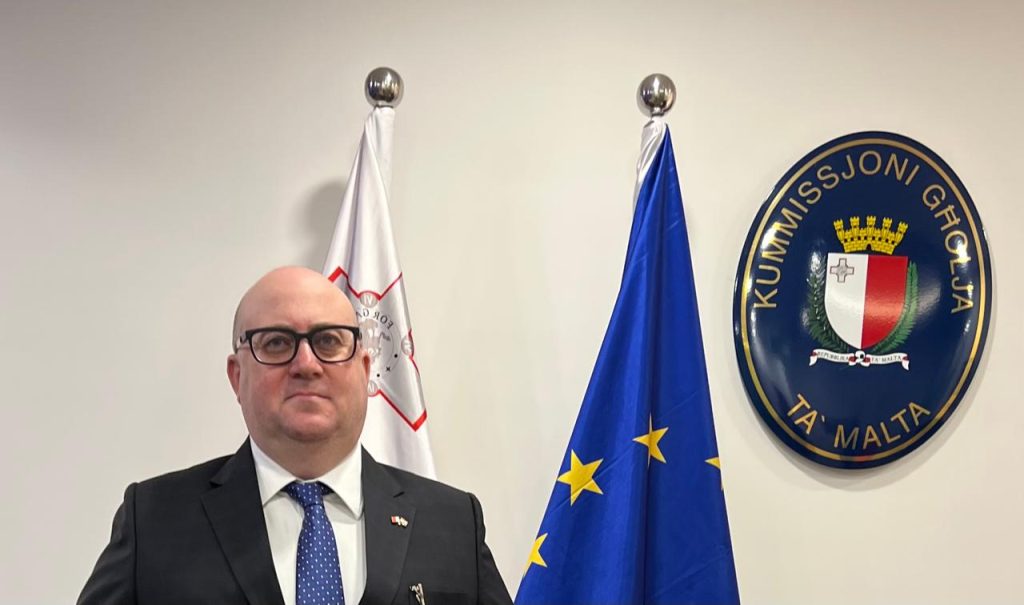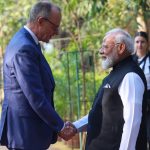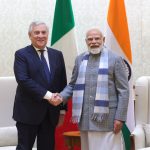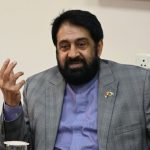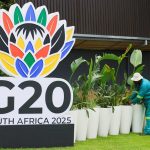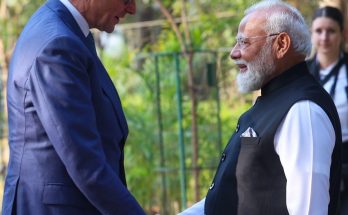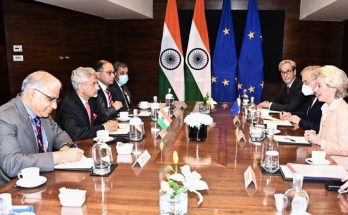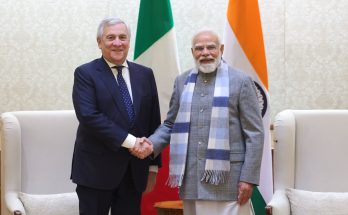India and Malta share a dynamic and evolving relationship, marked by six decades of multi-layered diplomatic engagement. Established in 1965, their partnership has grown stronger, driven by mutual respect and shared interests in trade, technology, and people-to-people ties. As Malta positions itself as a gateway to Europe and North Africa, and India cements its place as a global economic powerhouse, the opportunities for collaboration between the two nations have multiplied.
In an exclusive conversation with Manish Chand, CEO, Centre for Global India Insights and India Writes Network, Malta’s High Commissioner to India Reuben Gauci, shared his optimism about the future trajectory of India-Malta relations as the two countries gear up to celebrate the 60th anniversary of the establishment of diplomatic relations. Highlighting sectors such as pharmaceuticals, IT, and microchip production, he underscored Malta’s strategic importance as a hub for Indian businesses aiming to access European markets. The envoy also spoke about Malta’s role in the EU, and its support for India’s aspirations on the global stage.

Q) India-Malta relations have gained significant traction in recent years and are moving along a largely positive trajectory. However, there remains considerable scope for further growth. How do you view the future trajectory of this relationship, and what are the key areas of focus for its development?
A) This year marks the 60th anniversary of Malta-India diplomatic relations. On March 10, 1965, we established formal ties, with India being one of the first countries to recognize an independent Malta after we gained independence on September 21, 1964. Less than six months later, we had already cemented diplomatic relations. This milestone anniversary, which we will celebrate on March 10, 2025, highlights how far our relations have come.
As you mentioned, Malta-India relations are expanding, and no country today can afford not to have good relations with India. This is due to the immense potential India offers to the world. India is recognized globally as a rising power, both politically and economically. During my tenure as the High Commissioner, I have witnessed India’s incredible economic growth, becoming the fifth-largest economy in the world. It is crucial to tap into India’s vast economic potential and productivity through enhanced diplomatic and economic relations. A key strength of India is its people, who contribute significantly to its global influence. India has now the world’s largest population, overtaking China.
India-Malta relations are expanding in all areas. During my time in Delhi, we have seen an increasing number of Indian workers in Malta. Indian professionals and labourers have contributed to various sectors of the Maltese economy due to their high skill levels, loyalty, and work ethic. This has made them highly sought after by Maltese employers and further strengthened the connection between our two countries.
The Indian diaspora in Malta has grown exponentially, creating greater demands and opportunities for deeper bilateral engagement. Before COVID-19, this diaspora was already expanding rapidly. While the pandemic temporarily paused movement, Maltese employers consistently inquired about the resumption of work visas for Indian workers. Once the borders reopened, there was a significant influx of Indian professionals, especially in 2022, addressing the growing demand across sectors.
Beyond labour mobility, there has been notable investment from Indian companies in Malta, particularly in the pharmaceutical sector. Currently, around 112 Indian companies are operating in Malta, many of which are in pharmaceuticals, though others span diverse sectors.
We are keen to attract Indian companies in the IT and technology sectors, especially those involved in microchip and semiconductor production. The Maltese government provides extensive support to companies setting up operations in Malta, particularly in IT, as it represents the future of the global economy. Ensuring secure microchip production on the European continent is a priority for Malta as an EU member.
However, Malta’s physical size limits certain opportunities. As the smallest EU country, we cannot accommodate large-scale manufacturing facilities, such as Tata or Mahindra car plants. Instead, we focus on high-value industries like pharmaceuticals, which dominate trade between Malta and India. Chemicals flow from Malta to India for production, with finished products returning to Malta or entering the broader EU market. This mutual trade, centred on pharmaceutical production, forms a significant part of our economic relationship.
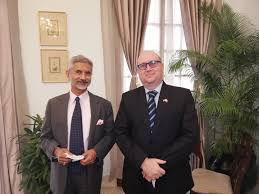
Q) Malta’s geoeconomic location is a major strategic advantage. Malta has been positioning itself as a gateway to Europe and North Africa. Have you succeeded in getting Indian companies to invest in Malta or use it as a gateway, with Indian products made in Malta being exported to Europe?
A: 112 Indian companies are currently operating in Malta. These companies are not targeting the Maltese market, given Malta’s population is only around half a million. When a company sets up operations in Malta, the primary objective is export.
Being a member of the European Union, any product produced in Malta can be sold freely across all EU member states. This is particularly advantageous for industries like pharmaceuticals and semiconductors. Producing in Malta means adhering to EU regulations, making products immediately exportable and tariff-free for a market of 450 million people.
Malta’s geographical location is one of our greatest natural resources. Located in the middle of the Mediterranean Sea, Malta connects the European continent to the north with North Africa to the south. This strategic positioning allows Malta to act as a gateway for North African countries seeking access to Europe and vice versa.
This advantageous location has shaped Malta’s history since ancient times. We are home to some of the oldest man-made structures in the world, reflecting our long-standing role as a hub for connectivity. Malta’s lack of land is a challenge, but the surrounding sea is another vital resource for communication, fishing, and potential minerals.
Malta has always been a centre for Mediterranean connectivity, dating back to the Phoenicians. Today, we are well-positioned to serve as a gateway not only for European and African countries but also for Indian companies. For instance, an Indian company interested in Libya or Tunisia can establish its administrative base in Malta, leveraging our highly advanced financial services sector.
Financial services are one of the pillars of the Maltese economy. While Malta historically focused on textiles, that industry has largely moved to North Africa. Now, our focus is on high-value production such as pharmaceuticals, semiconductors, and chips, as well as services like tourism and financial services.
Another emerging area is film production. Malta has become a hub for international film projects. The most recent example is Gladiator 2, which was largely shot in Malta. Bollywood productions have also utilized Malta as a filming location, including Thugs of Hindustan and Bharat. We are eager to welcome more Bollywood projects, building on Malta’s extensive experience in high-end film production.
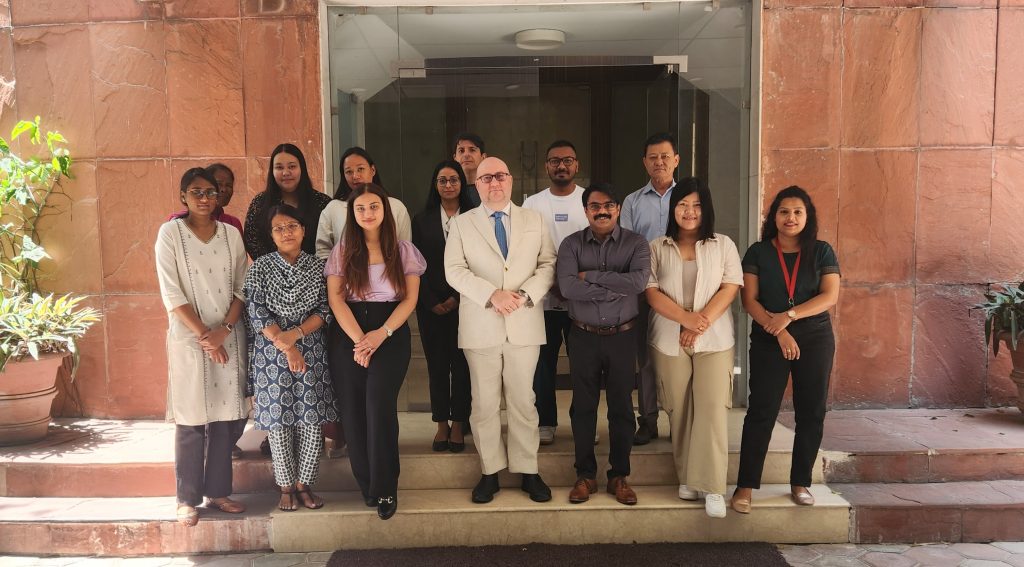
Q) You mentioned the 60th anniversary of India-Malta relations next year. Are you planning any celebrations?
A) We started celebrating in March 2024, marking the 59th anniversary of Malta-India relations. We will celebrate the 60th anniversary in March 2025 and hope to have a high-level visit from Malta to India to commemorate this milestone. We are doing our best to promote this significant year in our relations. We are hoping that Dr. Ian Borg, the Deputy Prime Minister, who is also the Minister for Foreign Affairs, will visit India in March 2025. He visited India in October 2023 when he was the Foreign Minister. He is now both Foreign Minister and Deputy Prime Minister.
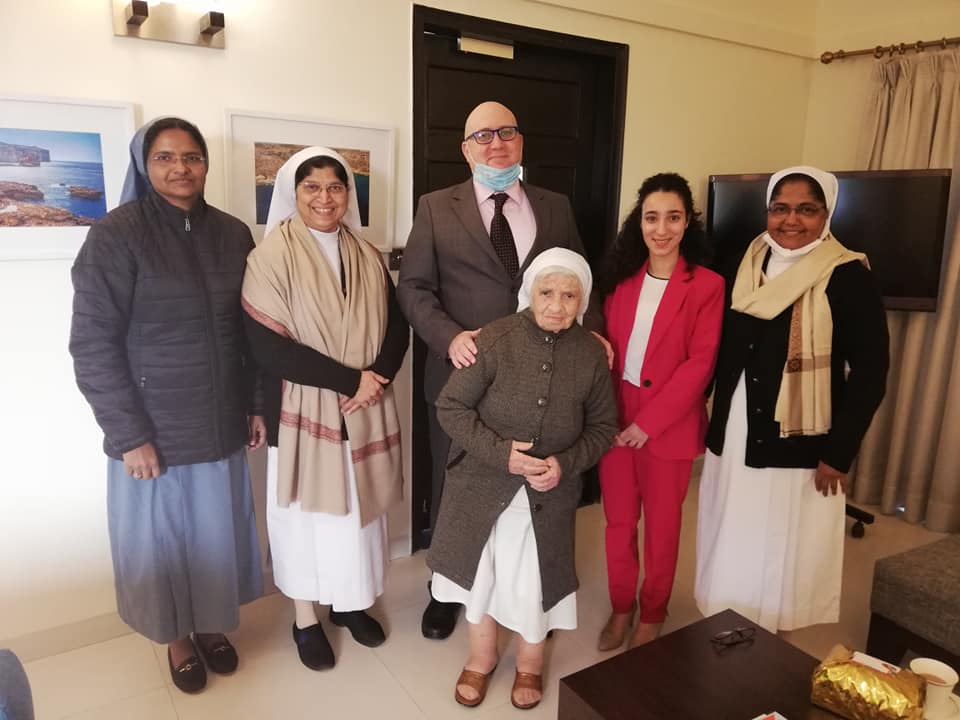 Q) Malta plays a unique role within the European Union. What is Malta’s position on the ongoing India-EU free trade agreement negotiations?
Q) Malta plays a unique role within the European Union. What is Malta’s position on the ongoing India-EU free trade agreement negotiations?
A) We are keen to see the India-EU free trade agreement signed. As of now, the negotiations have reached the ninth round, and there will likely be more rounds. This is a complex task, as India is a federation of states with their own economic laws, and the EU comprises 27 countries with different governments and politics. Once the negotiations are finalized, they must be approved by the European Parliament.
If achieved, the EU-India free trade agreement would be monumental and historic. While India has FTAs with the UAE, Australia, and others, an agreement with the EU would be of an entirely different scale.
Negotiating such an agreement requires both sides to consider their respective requirements and economic needs. Malta fully supports this agreement, as it would open up more opportunities for Maltese investments in India.
Q) Malta has a strong relationship with China as well as with India. Do you see any contradiction in this?
A) Malta-China relations go back to the 1970s, which is relatively recent. Malta became independent in 1964, and as I mentioned earlier, Malta-India relations are actually older than Malta-China relations.
In the 1970s, the Prime Minister of Malta at the time, Dom Mintoff, was likely the first European Prime Minister to visit China. This visit even preceded Nixon’s visit to China. So, we have had a good relationship with China, and we still do.
However, the geopolitical dynamics have shifted. We are no longer just discussing the Mediterranean region; we are now looking at global geopolitics, particularly the Indo-Pacific. Regarding the relationship between India and China, there seems to be a rapprochement between the two countries.
India and China are the two largest countries population-wise, each accounting for one-sixth of humanity. Naturally, with such large countries, there are bound to be frictions and difficulties. However, it is also evident that within organizations like BRICS, India and China cooperate as part of the same association. I don’t see Malta’s relationship with China as hindering our relationship with India, or vice versa. Being a member of the European Union, Malta fully adheres to EU rules from an economic perspective. We hope the FTA between the EU and India is signed soon, as it would further strengthen ties.
Q) How does Malta view India’s rise as a global power, and what is your position on United Nations Security Council reforms?
A) No country in the world can afford not to have a good relationship with India. Having a good relationship means ensuring that it continually improves. They say if you stop progressing, you start going backward, and this applies to diplomatic relations as well. To maintain a good relationship with any country, it requires momentum and consistent movement.
Regarding the United Nations Security Council, Malta is currently a non-permanent member. We have held this position since January 2023 and will remain in it until December 2024. We are grateful to India for voting for us.
We also supported India in 2020 when it sought a non-permanent membership. India is applying again for the 2029–2030 term, and we will look at this positively. India’s aspiration for a permanent seat is understandable, though it is a complex issue.
To be fair, while Malta can vote for India as a non-permanent member, the question of supporting its bid for a permanent seat is beyond our influence. However, we fully understand India’s position.
With the largest population in the world, India needs to be regarded as a global power. Like China, India’s needs and concerns must be acknowledged by the global community. India’s presence in the Security Council would reflect this status.
Of course, there are complexities, such as the veto power—will new permanent members have it or not? This has been a contentious issue, and many countries are cautious about extending veto powers. There is also the matter of underrepresentation, particularly for Africa, in the Security Council. So, this is not just about Malta’s view of India but about the structure of the Security Council and how it should evolve in the future. The Security Council needs to be democratized. As it stands, it is a product of the post-World War II era, which is decades behind us. The world has changed significantly since then, and the Council must reflect these changes.
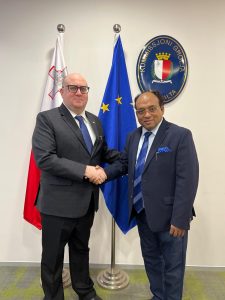
Author Profile

- Manish Chand is Founder and Editor-in-Chief of India Writes Network (www.indiawrites.org) and India and World, a pioneering magazine focused on international affairs. He is CEO, Centre for Global India Insights, an India-based think tank focused on global affairs.
Latest entries
 India and the WorldJanuary 13, 2026India, Germany raise the bar for defence, economic ties
India and the WorldJanuary 13, 2026India, Germany raise the bar for defence, economic ties India and the WorldDecember 12, 2025India-Italy bonding: Tajani’s visit raises the bar for business, maritime ties
India and the WorldDecember 12, 2025India-Italy bonding: Tajani’s visit raises the bar for business, maritime ties In ConversationNovember 26, 2025G20 is a Force for global Good
In ConversationNovember 26, 2025G20 is a Force for global Good articlesNovember 26, 2025Rescuing G20 from North-South divide: Ubuntu Moment
articlesNovember 26, 2025Rescuing G20 from North-South divide: Ubuntu Moment

